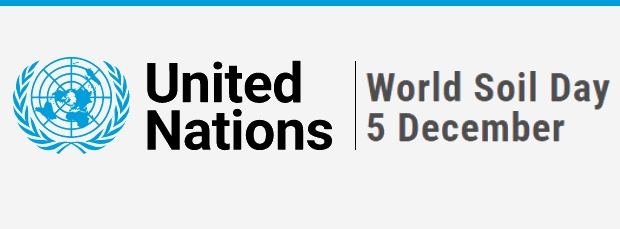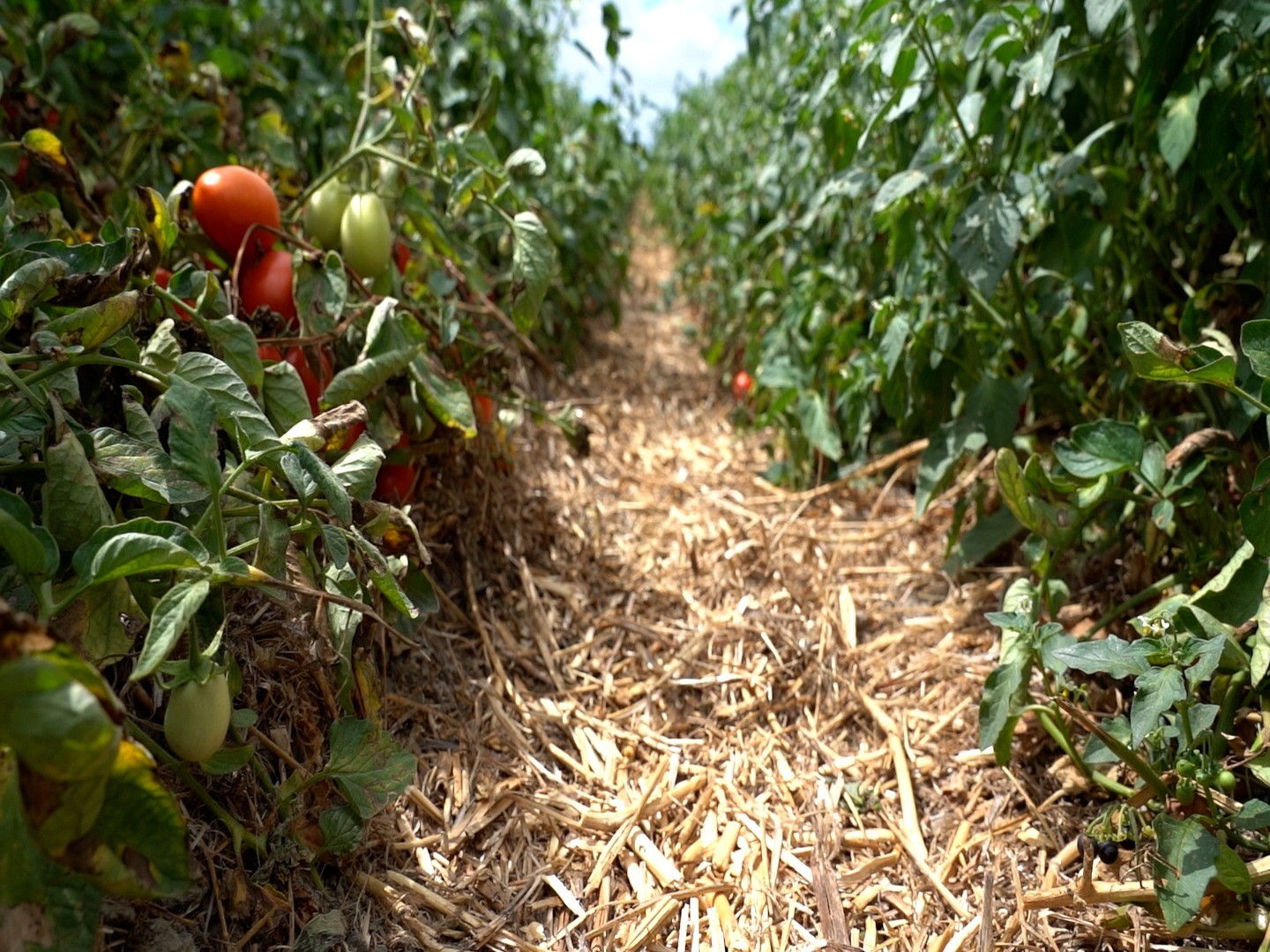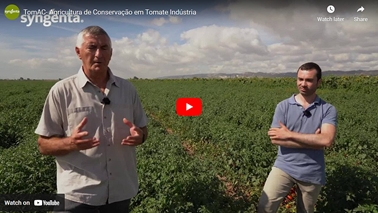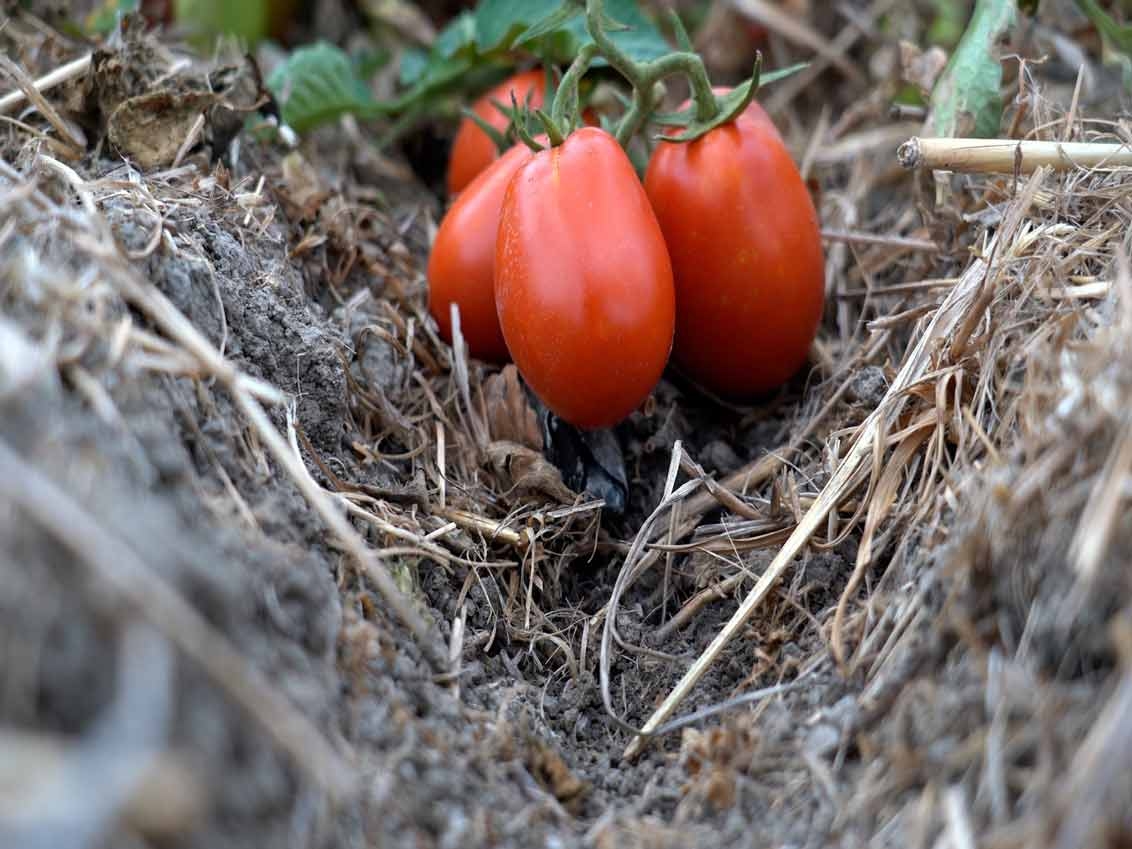Pioneering project applies the principles of conservation agriculture to growing tomatoes for industrial processing
 Supported by the FAO, World Soil Day is a global awareness-raising platform held each year on December 5 to draw attention to the importance of healthy soil and to promote the sustainable management of the soil and the resources it provides.
Supported by the FAO, World Soil Day is a global awareness-raising platform held each year on December 5 to draw attention to the importance of healthy soil and to promote the sustainable management of the soil and the resources it provides.
During the 2022 Soil Day event, the consortium of the project called "TomAC - sustainable tomato production through the implementation of conservation agriculture principles" reported encouraging preliminary results on the applicability of conservation agriculture techniques to the cultivation of processing tomatoes, with benefits for human health and soil conservation.
Currently, processing tomato cultivation is carried out in the context of a monoculture system, with intense mobilization of the soil, a practice that poses problems in terms of soil quality management, weeds, pests and diseases. The goal of "TomAC" is to identify and test good agricultural practices that promote the improvement of soil structure and fertility, and also optimize the agronomic, economic and environmental performance of processing tomato cultivation.
 The "TomAC" consortium is made up of the Ag-Innov-Center of Excellence run by the Sugal Group (a tomato growing and processing company), Syngenta, MED-UÉvora (Mediterranean Institute for Agriculture, Environment and Development of the University of Évora) and Aposolo (Portuguese Association for Soil Conservation Mobilization). The project is funded by the Foundation for Science and Technology, and by Syngenta.
The "TomAC" consortium is made up of the Ag-Innov-Center of Excellence run by the Sugal Group (a tomato growing and processing company), Syngenta, MED-UÉvora (Mediterranean Institute for Agriculture, Environment and Development of the University of Évora) and Aposolo (Portuguese Association for Soil Conservation Mobilization). The project is funded by the Foundation for Science and Technology, and by Syngenta.
The trial has been running since 2021 on a 14-hectare plot in the Lezíria of Vila Franca de Xira, and compares conventional tomato cultivation with an innovative system that applies the three principles of conservation agriculture:
 minimal soil disturbance (planting tomatoes in a 15 cm strip of soil on each planting row);
minimal soil disturbance (planting tomatoes in a 15 cm strip of soil on each planting row); ? permanent soil cover with plants or plant residue (during the fall-winter period, the soil is covered with a mixture of grasses and legumes, a practice that is beneficial for the health and fertility of the soil, and that prevents the leaching of nutrients);
? permanent soil cover with plants or plant residue (during the fall-winter period, the soil is covered with a mixture of grasses and legumes, a practice that is beneficial for the health and fertility of the soil, and that prevents the leaching of nutrients); ? and crop rotation (biennial rotation between tomato and sunflower crops).
? and crop rotation (biennial rotation between tomato and sunflower crops).
"In this first year, tomatoes grown with limited soil tillage of each planting row performed similarly to conventionally grown tomatoes, where the entire width of the planting bed is used, suggesting that row tillage will bring benefits in terms of tomato production and soil quality in the future," stated Ricardo Vieira Santos, researcher at MED-Évora.
The application of conservation agriculture to transplanted crops is a recent concept, and the objective of this pioneering project is to demonstrate the viability of these techniques in the cultivation of processing tomatoes and their benefits in terms of saving water and energy, increasing soil fertility, improving biodiversity and increasing carbon sequestration. The "TomAC" project is due to last four years. In this context, Syngenta, as a science-based company, is driving innovation and developing technologies that help farmers around the world adopt regenerative practices that can contribute to improved crop profitability, a transformed global food system and carbon neutral agriculture.
Sources: agriterra.pt, agroportal.pt, almeirinense.com, syngenta.pt


































